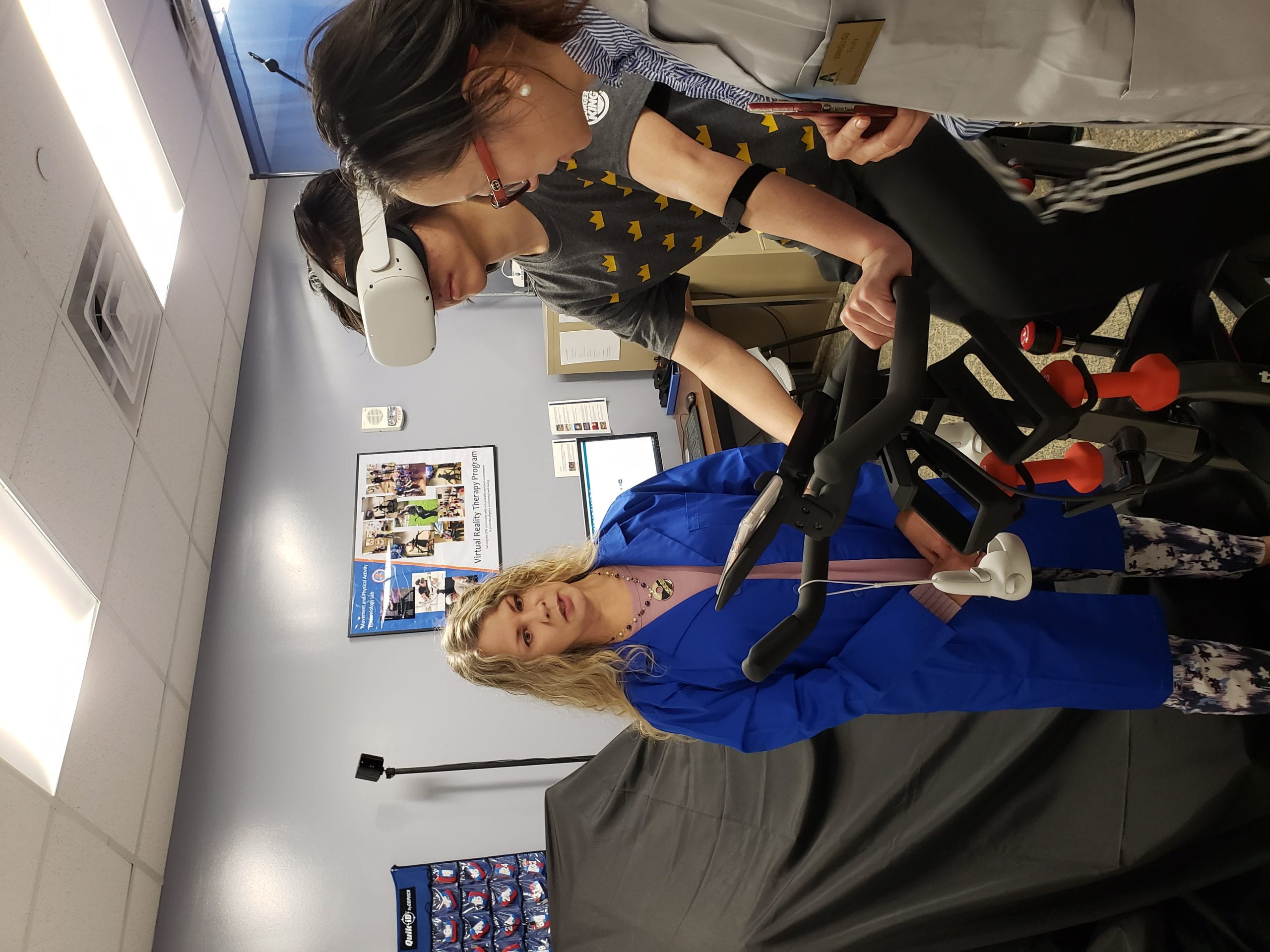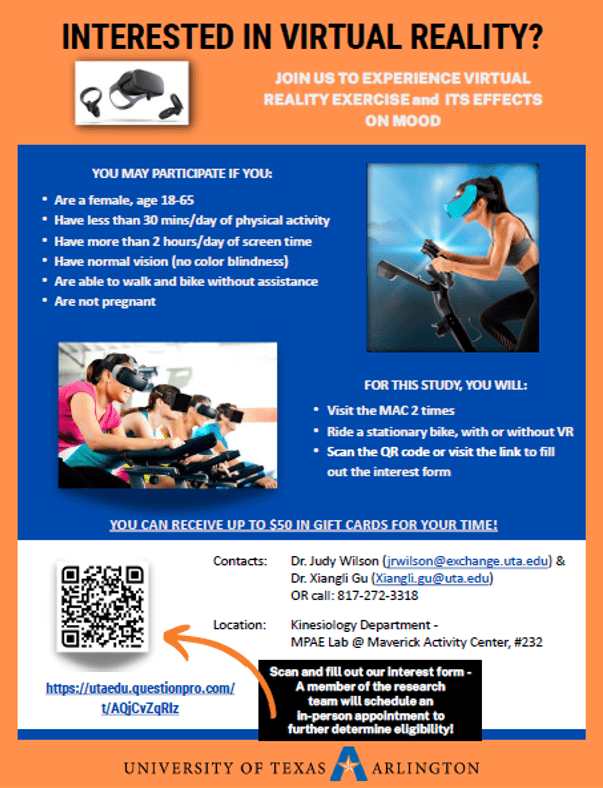
The most recent national survey of college students reported that nearly 22.5% of female college students were diagnosed with depressive symptoms, twice more than their male counterparts (American College Health Association, 2019) who may also have symptoms of depression.
An active lifestyle may have protective effects on brain health across the lifespan, and increasing evidence shows a positive association between the extent of physical activity (PA) and cognitive and brain function in the adult population.
The virtual reality (VR) application has been implemented in the neuropsychological rehabilitation settings in patients with brain injury or cognitive impairment, in which patients perform practice behaviors while interacting with the computer-simulation of an environment that imitates a physical presence in real or imagined worlds. It was demonstrated that VR-based interventions are more effective than traditional exercise programs for physical and neurocognitive performance in patients with mental disorders.
Approximately one in three college students have a diagnosed depression.
In recent years there is emerging evidence that individuals with depression are also more susceptible to developing CVD and neurocognitive dysfunction relative to those without depression (i.e., depression leads CVD risk / presence). In addition, individuals with depression are more likely to be sedentary and physically inactive.
We propose that exercise will improve cognition and that the magnitude of improvement in the VR group may be higher when compared to the non-VR group.
The research purpose is to examine the effects of a 20-minute VR biking intervention on participants
- Healthy behaviors (i.e., physical activity, sedentary behavior, and sleep)
- Neuropsychological outcome (reaction time, executive function, and memory), and
- Mental health/mood


For more information, Contact:
Xiangli Gu
Click Here!